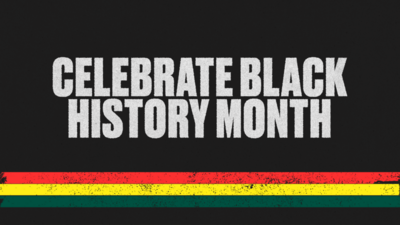
BY JASON KLORFEIN |
Cool It: Ondi Timoner
In Ondi Timoner's new doc, environmental writer Bjorn Lomborg explores the inconvenient truth about what’s wrong with environmental policy, and how we can really make a difference.


While An Inconvenient Truth (2006) undeniably drove popular activism and awareness of global warming, like any pop-culture object that succeeds at zeitgeisty relevance, the merits and memories of the film itself have been muddied by the subsequent trends and media non-events that have followed. Al Gore and Davis Guggenheim’s film now seems inseparable from the recent wave of “green chic,” including the optimistic and opportunistic Live Earth (7/7/07) benefit concert, and the ManBearPig parody on South Park.
Amidst the increased demand for eco-friendly consumer items ranging from the Toyota Prius to energy-efficient light bulbs, academic and environmental writer Bjorn Lomborg (The Skeptical Environmentalist) proposes that the current proposals (including the Kyoto Accords) carry a financial cost that far outweighs their ability to reduce carbon emissions. Ondi Timoner's new documentary Cool It serves as a platform for Lomborg’s proposed solutions on how to alleviate the effects of global warming.

Appealing to rationality instead of the romantic grandeur of doomsday fantasies, Lomborg argues that the apocalyptic potential of global warming has been overstated: sea levels have risen for centuries, and the increased death toll taken on polar bears is more likely due to a proportional increase in their population. Both Lomborg and the film are at times persuasive in their simple, but important, premise that “cap and trade” policies used to reduce environmental pollution are reasonable for post-industrial nations. For developing countries, the increase in quality in life that results from mass industrial activity is far more important than reducing carbon emissions.
In a recent phone interview with Tribeca, Ondi Timoner agreed Cool It is a departure from her previous feature docs. Whereas Join Us (2007), Dig! (2004), and We Live in Public (2009) (the latter two both received the Sundance Documentary Grand Jury Prize) followed their subjects over a prolonged period of time, Cool It was shot over the course of a year in a dozen locations throughout Europe, Africa, and North America. (Timoner also recently finished Library of Dust, a short about the Oregon State Hospital [the setting for One Flew Over the Cuckoo’s Nest], where cremated human remains were found in thousands of urns. “The copper, and the water, and the human remains all combined to make works of art,” Timoner said.)

Tribeca: On the surface, Cool It seems like a departure from your previous work. But like Dig! and We Live in Public, it’s centered on this charismatic, self-proclaimed iconoclast. What was Bjorn Lomborg like in comparison to Anton Newcombe and Josh Harris (the subjects of your previous films)?
Ondi Timoner: He’s controversial, that they have in common. He was difficult to make human. He’s very data-oriented, very big-picture oriented. Aside from that, there’s not much in common. For Bjorn, it was important to introduce his story in the first 15 minutes [of the film] and depart from there.
I met him in New York and interviewed him for five hours. I was looking to punch holes in his ideas. And he really answered his ideas in such a complex way. I made him take it down further. His take on the climate change issue was important. I ended that meeting at the Cosmic Diner by saying, “So, Bjorn, what are your politics?” I wanted to make sure that these weren’t right-wing politics.
Tribeca: What do you think of An Inconvenient Truth?
Ondi Timoner: We’re not taking cheap shots at the crew of An Inconvenient Truth; you made a great film. Gore brought the issue into our consciousness. Really, the film is a follow-up to An Inconvenient Truth. Let’s take a look at the solutions we should be financing.
Tribeca: The film presents several possible solutions to global warming: cloud brightening, wave power, etc. But one of the central arguments it makes is that we should focus on other issues in developing countries: Is education the solution to global warming in developing countries?
Ondi Timoner: We can do a lot more to help them with education and disease. These are the people who will be most damaged by climate change. They don’t have good road waves, and the poorest countries are landlocked. It’s the great moral issue of our time.

Tribeca: Do you have any plans for community outreach with Cool It?
Ondi Timoner: I hope this will be shown in schools. I think Bjorn had a great idea: do what Bill Gates did, and have us vote on the top 50 solutions. [The Bill & Melinda Gates Foundation works with and invests in a variety of partners to seek solutions to global health issues.] Finance all of those solutions. If 47 fail and 3 succeed, we’re set. Hopefully this will be the start of a movement for people to contact politicians.
Ondi Timoner and Bjorn Lomborg will attend a special screening of the film at 92YTribeca on Wednesday, November 10, at 7:30 pm.
Cool It opens in New York, Los Angeles, and other cities on Friday, November 12. The film will expand to other cities the following week. Find tickets.
Watch the trailer: